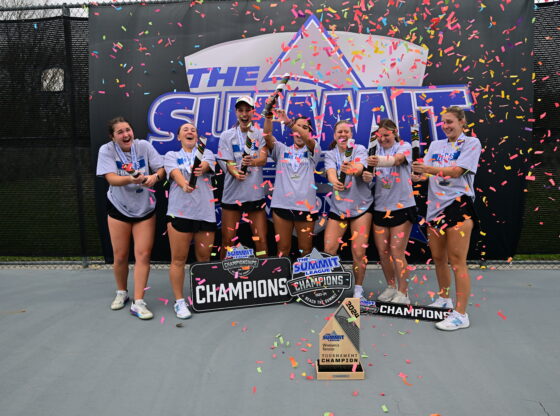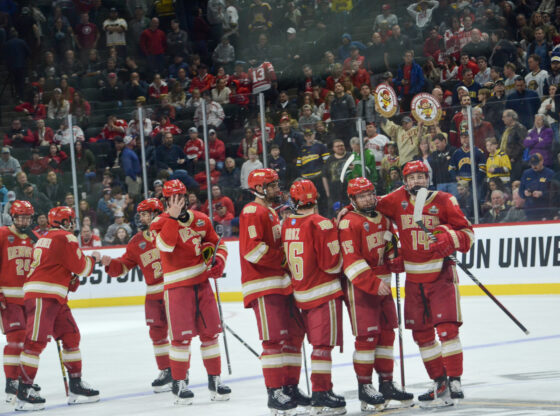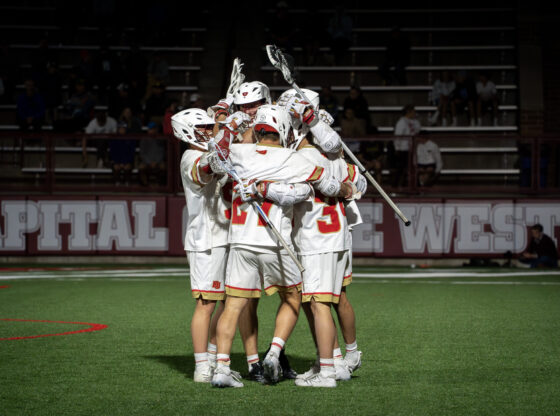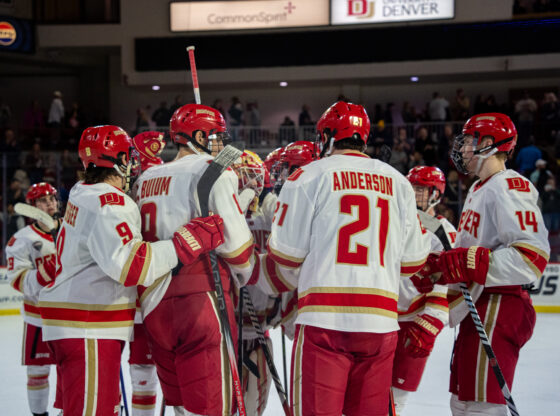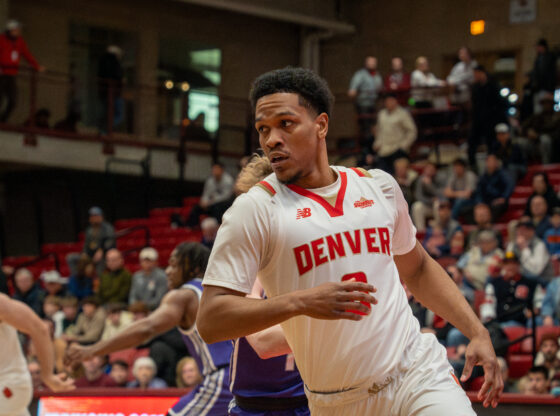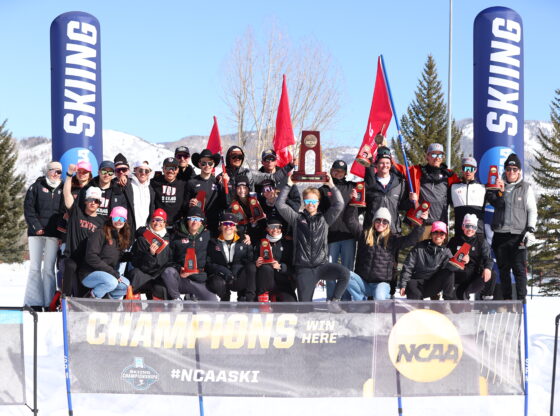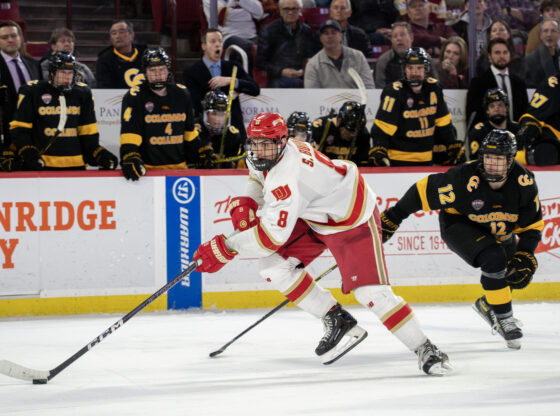Along with every other male-dominated industry, women working in the sports industry has always been a controversial topic. Here at the University of Denver, five out of the ten senior-level athletic staff members are women, which is a sharp increase from the national average where only 13% of Division I Athletic Directors were women in the 2021-2022 season.
Angel Field oversees external operations at Denver Athletics. Out of the 20 people she oversees daily, three are women. Since she joined the Denver Athletics team in 2002, she says the attitude towards women in sports has changed for the better but is still far from perfect. Most of her job is operational, but she says it has a lot to do with brand revenue generation as well. She oversees DU’s ticketing team, sponsorship team and tech services team, as well as the marketing, promotion and event operations team.
This interview has been modified and shortened for clarity.
LeCompte: How do you feel working in a male-dominated field?
Field: Pretty comfortable after this long. I think you have to keep in mind it’s kinda like we talk about coaches’ mentality depending on where they are at in the year. If they are going into their season, like 2 weeks out, they are going to be high-strung, stressed and asking you for things multiple times. You just have to learn the reason and the season, where we are in the season and how you do it.
Males are very strong voices, but I think us as women can have just as strong voices with reasoning to back it up and I think that’s where we win the day sometimes.
I also think men and women just out of nature we just think differently and at times you need both at the table to make a decision and so it’s important to have those different perspectives, the male might see it one way and the female might see it the different way and then if you can pull those discussions together to make a decision to best serve all that’s really important.
LeCompte: How is it different working between males and females in sports?
Field: I would say men are less sensitive than women. I know it’s not a surprise, but I would say it’s all about your approach. These things don’t come right away, and you need to be in it for a while. I have had to learn what to let go and what to not let go.
We live in a society today that is much different than ten years ago, and what you say and how you say it is going to take a different meaning than something else. I think you can be overlooked in the room if you don’t have a strong voice, so that’s what I have been taught — to contribute and participate and have a strong voice but also have the facts to back it up.
I think as I said before, men will just short phrase everything and women will talk about the details, reasons, and the whys and all that stuff, and sometimes you just make a statement and listen and then come back and pull it all together to make the right decision.
LeCompte: What are some issues you have faced in the sports industry as a woman?
Field: I think that a seat at the table is much harder to get. At times you have to work harder than men in suits, and I am not belittling them by any means. It’s just that we are in sports, and they know everything, so you need to know everything coming to the table.
Earning the respect of the men in the room is really important, and it doesn’t come easily. You have to learn the most from your failures and your adversities rather than anything else.
I think it’s important to show that you work hard. Women have to prove that they do the work to get [succeed] whereas sometimes the men [fit the typical role], so we have to break those barriers and say that we fit here too, and we need to do this too.
I think it also goes back to being an advocate for our female student-athletes. I think that life goes in circles, and when we talk about diversity and balance between men’s and women’s sports and how it’s different for us in administration, it’s also different for them to play in [male-dominated] sports. So [my question becomes], how can you be that female role model? They are probably going to listen to you as a female role model versus a senior male administrator because you’ve lived it, you’ve been there, you’ve seen it.
I think this is another thing: how can you be equal from a pay structure or for opportunities and we as females have to work harder for that. I think it’s getting better, especially in athletics, and even in my time, I’ve seen great improvement. But [as a woman], you have to show your value and that isn’t always the case on the men’s side. You have to be willing to do things you aren’t comfortable with and get out of your comfort zone. So just lean in at the table, make your statement and always be a good listener.
Basically, to answer the question quickly, you need to have a voice and earn that voice.
LeCompte: Anything else you want to add to the topic?
Field: I’m extremely excited when I see someone interested in sports administration. I value women in sports. For someone so young to say, “I want to do this,” I say, “What do you mean, ‘I want to do this?’” To give them the opportunity to do this is very rewarding.

